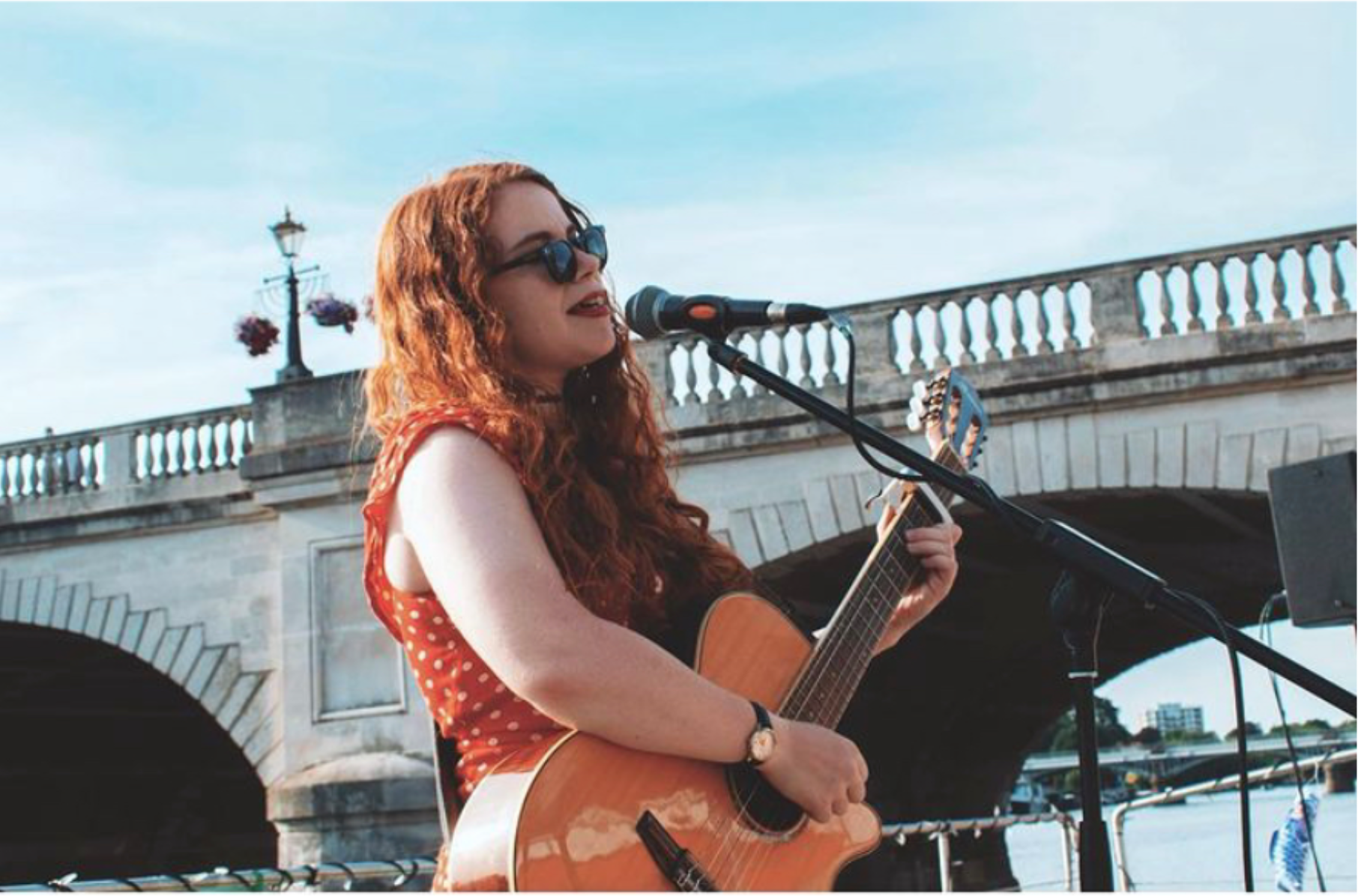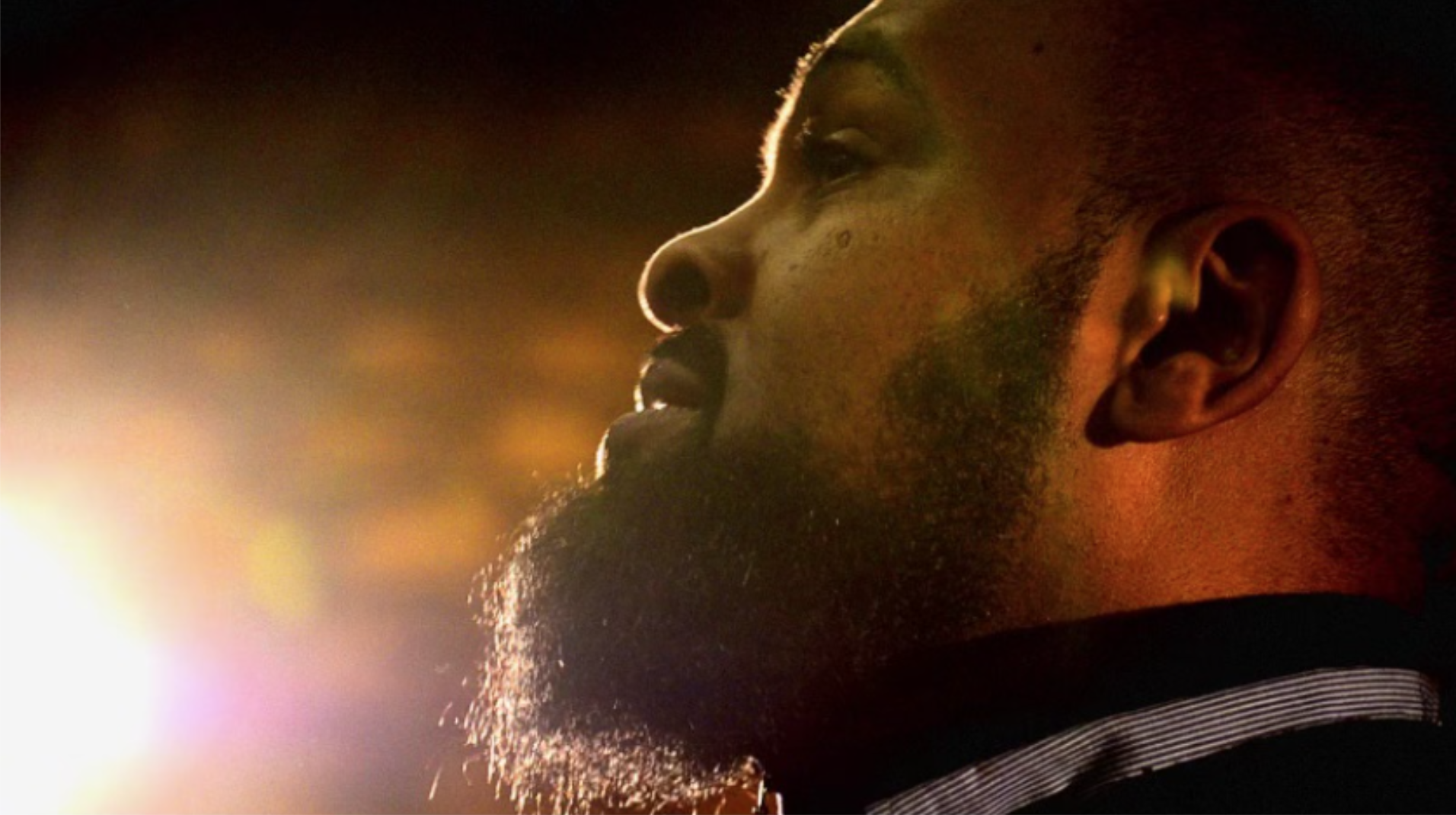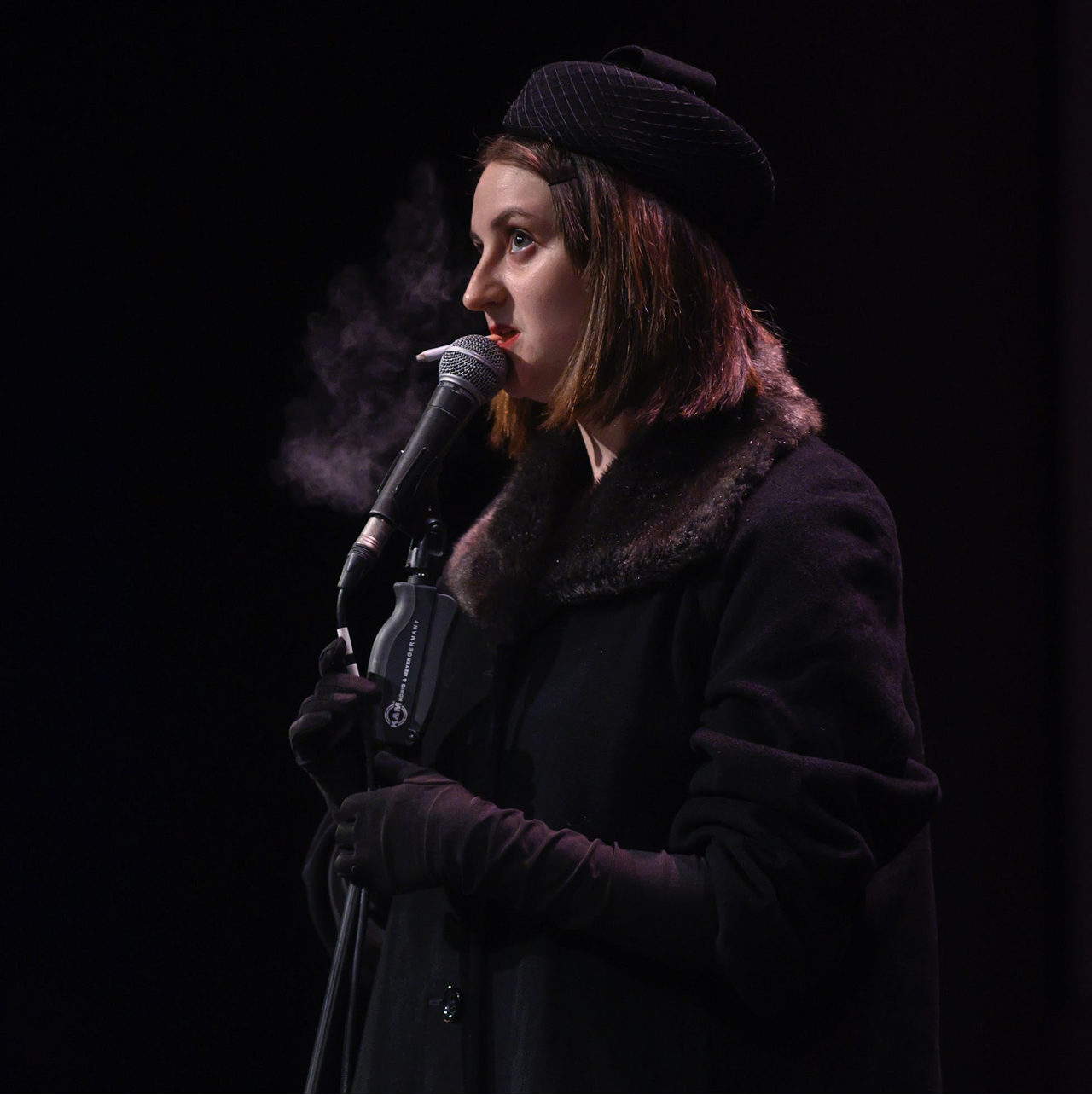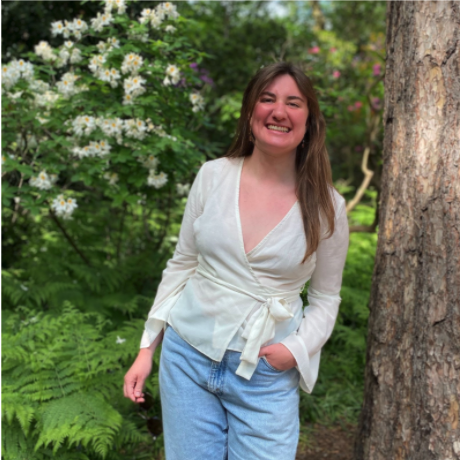Chloe Leigh - Spanish-English singer songwriter
https://www.flowcode.com/page/chloeleighmusic
“For me, there’s always been a relationship with music and my mental health. It was initially something I leant on as a sort of support system, and then later became an outlet when I began songwriting. Most of the time when my mental health is at its worst, the idea of being creative or going out and performing feels nearly impossible. But almost always every time I do gig in those moments, or manage to piece a song together, I start to feel so much better. Music is my way of processing and communicating parts of my journey with my mental health, and just life in general, and I’m forever grateful for it.”
 Chloe Leigh Thomas - Credit: @micah_photos25
Chloe Leigh Thomas - Credit: @micah_photos25
Sharifa Butterfly - Dancer recently turned stand-up comic
“At the moment I’ve been mostly performing stand up comedy, which has been really good for my mental health. I like that I can talk about stuff in a funny way, I feel like that’s quite therapeutic. If I have quite a few open mics in a week I have something to work towards each day which keeps my brain ticking.
As a dancer recently I have been performing less in front of an audience and more for adverts and commercial jobs, which is different. But performing in front of an audience helps me stay in the moment. When you are neurodiverse it’s easy to go into your own world. Performing live means there is one part of the day where you have to be present.”
Hazel Thompson - Folk musician
“I recently performed when I was underslept, undernourished and generally feeling quite anxious. The experience was transformative for my mental health, low self esteem often leaves you feeling like you’re not good enough, however after the set I got great feedback and could acknowledge that irrelevant of how well you are doing, you still can have something to give, and you are still worthy. I developed my way of performing music because the stress would often take over me and I would no longer recognise the shape of the G-major chord on the guitar, and forget the entire song. So I adapted to make a song from mistakes, make music from the not-knowing.
On good days, I feel like I can share all the joy and connection I have ever felt and welcome it into the crowd. On bad days, I can share a nice sound and be radically vulnerable in public. Although the stress surrounding performing, getting paid, finding gigs, gigs getting canceled, self-promotion is an exhausting battering of tasks. When others come to you and share that you lifted their spirits, knowing the impact performance can have on a sense of community makes it seem worth it.”
Alex Franklin - Sketch and character comedian
https://linktr.ee/acfranklin88
“Honestly I don’t know if performing helps or worsens my mental health - it varies a lot day to day. I think in the grand scheme of things it’s simply one of the many activities a person can do that greatly impacts them. The pressure can cause emotions and unresolved issues to rise to the surface, but those were always there to begin with. But sometimes making something really good makes everything just feel alright.”
Diyo Mulopo Bopengo - Poet
“I have developed a love of poetry since I migrated to the UK, as a refugee it is hard to find a solid ground to lay your feet. In Autumn of 2019 I join Good Chance’s Change the Words Collective. I have since co-published 3 Anthologies with the group and I have done performances at various events around the UK. Most, or I may say all, refugees do battle with their mental health. I use poetry and creative art as an escape and this has helped me from time to time. The boldness of knowing that you have a voice and seeing everyone listen does motivate me.”
 Diyo Mulopo Bopengo
Diyo Mulopo Bopengo
Jess Gibson - Dancer and movement artist
https://jessgibsonarts.wixsite.com/jessgibson
“What impact performance has on my mental health totally depends on the form or what it is. If I’m improvising myself and playing with dance it feels fun, light and in flow. If I’m working on a project outside of my discipline it can be positive or negative or neutral depending on what it is and who I’m with. I think people and teams have such an impact on how something feels to produce.”
Lorna Rose Treen - Clown, character comedian an improviser
https://www.lornarosetreen.co.uk/
“Navigating the anxiety around performing, for me, is a constant. I need to pre-emptively rest, eat well, exercise and sleep - which all sounds obvious, but if more than one thing messes up I risk getting sweet sweet burn out. Its like a constant work in progress for me - learning to have a bit of control over my anxiety. Once I’m on stage I actually feel really present, and on the whole it can feel a bit like a really good stretch. I find it really helpful for my anxiety. Especially in improv - it can feel like a proper mind workout. I also find it’s helpful to have a constant dialogue with myself about what I’m finding anxiety inducing - is it big stuff, like career/future/unknowns - the uncontrollable stuff? Or is it because I have a task I need to do - which I can actually do, and I should just get on and do it.”
 Lorna Rose Treen - Credit: Steve Ullathorne
Lorna Rose Treen - Credit: Steve Ullathorne
Sam Tucker - Singer-songwriter
“I found that performing gave me an outlet for a lot of pent up nervous energy, and had a huge positive effect on my self-worth - for better or for worse. I always wanted to perform though, so perhaps not performing affected my mental health negatively. When I’m on stage, everything except entertaining people kind of fades into the background - which might not be the healthiest coping mechanism, but performing original songs is a decent way of processing stuff that’s happened.”





 Katrina Woolley
Katrina Woolley
